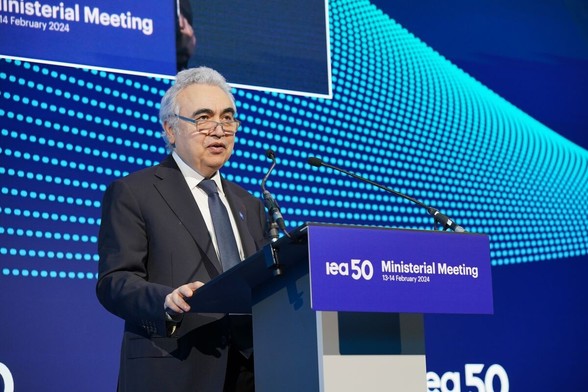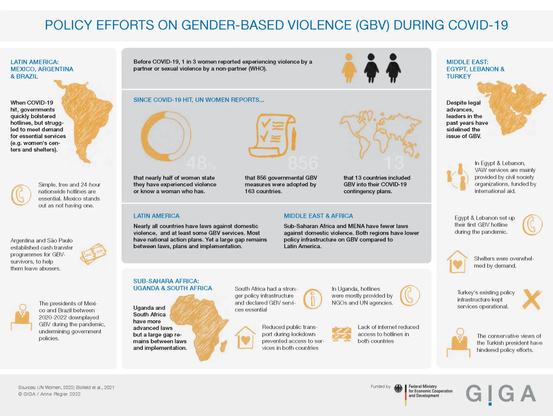Acting President Han Duck-soo pledges active consultation with all political parties to address the urgent livelihood crisis, emphasizing the need for swift policy implementation and public communication amid economic challenges.
#YonhapInfomax #ActingPresidentHan #LivelihoodCrisis #TradeWar #EconomicChallenges #GovernmentPolicies #Economics #FinancialMarkets #Banking #Securities #Bonds #StockMarket
https://en.infomaxai.com/news/articleView.html?idxno=55473
#governmentpolicies
Housing business sentiment index in South Korea rises to 74.0 in March, reflecting improved outlook in Seoul and metropolitan areas amid policy changes and interest rate expectations.
#YonhapInfomax #HousingBusinessSentiment #SeoulMetropolitanArea #RealEstateMarket #ConstructionOutlook #GovernmentPolicies #Economics #FinancialMarkets #Banking #Securities #Bonds #StockMarket
https://en.infomaxai.com/news/articleView.html?idxno=54006
Why India’s IT Sector Is Stumbling?
Hey there! So, imagine this scenario: you’re sipping your coffee. You’re scrolling through your phone, and you see a headline. It’s about India’s IT giants—like TCS, Wipro, and Infosys—hitting a rough patch. You’ve probably heard how India’s been this massive tech hub for years, right? Coding, outsourcing, all that jazz. But lately, things aren’t looking so shiny. I’ve been digging into this, and honestly, it’s a mix of global chaos, some stiff competition, […]https://munaeem.de/2025/03/08/why-indias-it-sector-is-stumbling/
RainSMediaRadio News A New Dawn in Nigeria’s Financial Landscape - Dr. Kenny Odugbemi https://www.rainsmediaradio.com/2025/03/a-new-dawn-in-nigerias-financial.html?utm_source=dlvr.it&utm_medium=mastodon Follow, Like & Share #NigeriaFinance #FinancialTransparency #GovernmentPolicies #TMRAS #Efficiency
University of Kentucky: UK’s Housing Engagement and Research Initiative launches statewide resource hub online. “In partnership with Community and Economic Development Initiative of Kentucky (CEDIK) at the Martin-Gatton College of Agriculture, Food and Environment and Land-grant Engagement, the new website is a centralized hub for Kentucky housing resources and data — providing state and […]
Lord Wolfson warns about entry-level job availability: Impact of govt policies

https://www.europesays.com/1803113/ Drone Market Global Forecasts and Competitive Analysis 2025-2033, AeroVironment, Delair, Intel, Boeing, Parrot Drones, AgEagle Aerial Systems, and Teledyne FLIR #AerialShots #AgriculturalDrones #CanadaDrone #CompanyAnalysis #ConsumerMarket #Data #DroneIndustry #DroneRacing #EnvironmentalMonitoring #FranceDrone #GovernmentPolicies #IoT #logistics
“The Nac Mac Feegle would fight and steal, certainly, but who wanted to fight the weak and steal from the poor?”
Terry Pratchett; The Wee Free Men
#Discworld #GovernmentPolicies #TargetingTheVulnerable #AlwaysBenefitScroungers #TargetTheTaxDodgingMonarchy
️മഹാരാഷ്ട്രയിൽ മദ്രസ അധ്യാപകരുടെ ശമ്പളം മൂന്നിരട്ടിയായി; ന്യൂനപക്ഷ ക്ഷേമത്തിന് പുതിയ പദ്ധതികൾ
Read full story: https://nivadaily.com/maharashtra-triples-madrasa-teacher-salaries-boosts-minority-welfare/
Join our Whatsapp group
https://chat.whatsapp.com/CktzgxHMaoo84IZtsOqEe6
In today’s complex discussions about immigration, crime, and unemployment in the United States, it’s essential to sift through the facts and address misconceptions. This article explores historical trends, the roles of various governmental bodies, and why prioritizing economic stability is crucial for our society’s well-being. Additionally, it examines the impact of specific policies, particularly those implemented during the Trump administration, and their implications for the economy, crime rates, and inflation.
Historical Overview: Immigration and Unemployment Trends
Throughout different presidential administrations, the annual number of new legal immigrants to the U.S. has remained relatively stable. Under Presidents George W. Bush, Barack Obama, Donald Trump, and Joe Biden, this number has typically ranged from 1 million to 1.2 million immigrants per year. This consistency highlights a key aspect of U.S. immigration policy: despite changes in leadership, the volume of immigration has not dramatically fluctuated.
Each presidency has witnessed variations in unemployment rates and perceptions of crime. For example, during Trump’s term, the unemployment rate surged to 14.8% in April 2020 due to the COVID-19 pandemic, before gradually improving. Similarly, crime rates, particularly violent crime, increased toward the end of his presidency, influenced by the pandemic’s broader socio-economic impacts. Importantly, research shows that immigrants generally have lower crime rates compared to native-born Americans, underscoring that immigration is not a primary driver of crime.
The Impact of Trump’s Policies on the Economy, Crime, and Inflation
During President Donald Trump’s administration, several policies had significant and often detrimental effects on the economy, crime rates, and inflation:
Economic Impact: Trump’s administration implemented aggressive trade policies, including tariffs on imports, which led to trade tensions and uncertainty in global markets. These actions contributed to economic instability and affected industries reliant on global supply chains. Additionally, Trump’s handling of the COVID-19 pandemic led to economic disruptions, exacerbating unemployment and economic instability.
Crime Rates: While crime rates saw an uptick towards the end of Trump’s term, partly due to the socio-economic impacts of the pandemic, his rhetoric and policies often emphasized harsh stances on crime and immigration. This focus, coupled with reduced social support and community services during his tenure, may have contributed to heightened tensions and crime in certain areas. However, it’s crucial to note that overall data consistently shows that immigrants have lower crime rates compared to native-born citizens.
Inflation: The Trump administration’s policies, including significant tax cuts and increased government spending, added to the national debt and contributed to inflationary pressures. The combination of these policies, along with economic disruptions from the pandemic, led to inflation spikes that affected the cost of living for many Americans.
Who Controls Inflation and Unemployment?
Understanding the governance of inflation and unemployment is crucial for grasping how these economic factors are managed:
Federal Reserve: Controls inflation and influences unemployment through monetary policy, including setting interest rates and managing the money supply.
Congress: Shapes economic conditions through fiscal policy, such as government spending and taxation.
Executive Branch: Influences economic policy through budget proposals and key appointments affecting monetary policy.
Bureau of Labor Statistics (BLS): Provides critical data on inflation and unemployment rates.
These entities work together to manage economic conditions and address issues related to inflation and unemployment.
Who Controls Immigration and Border Policies?
Several bodies are responsible for the complex system of immigration and border security:
Congress: Creates and amends immigration laws.
Department of Homeland Security (DHS): Enforces these laws and manages border security through its sub-agencies, including Customs and Border Protection (CBP), Immigration and Customs Enforcement (ICE), and U.S. Citizenship and Immigration Services (USCIS).
Department of Justice (DOJ): Adjudicates immigration-related legal proceedings.
The President: Influences immigration policy through executive actions.
State and Local Governments: Collaborate on enforcement but cannot independently set or enforce immigration laws.
Kamala Harris’s Role in Policy
Vice President Kamala Harris plays a significant role in shaping both immigration and economic policies. Her efforts focus on reforming immigration laws while supporting economic recovery, balancing humanitarian concerns with economic stability. Her work reflects a commitment to managing immigration effectively and promoting economic growth.
The Myth of Immigration and Crime
A common misconception is that increased immigration leads to higher crime rates. However, studies consistently show that immigrants are less likely to commit crimes than U.S. citizens. Immigration does not contribute to increased crime rates; instead, addressing economic and social factors is more effective in influencing crime rates.
The Importance of Local vs. Presidential Voting
While presidential elections receive significant attention, local and state-level elections have a more immediate impact on daily life. Local governments handle policies related to economic conditions, job creation, and community safety. Voting locally allows citizens to influence decisions on education, infrastructure, and law enforcement, directly affecting their communities.
Focusing on Economic Stability
Given that immigration does not drive increased crime, the focus should shift to economic stability. Unemployment and economic instability are more significant factors influencing crime rates. Effective economic policies and investments in job creation, education, and social services are crucial for fostering a secure and prosperous society.
In summary, while immigration, crime, and unemployment are often discussed together, evidence shows that immigration is not a major driver of crime. The impact of Trump’s policies on the economy, crime rates, and inflation further underscores the need to prioritize economic stability. Both presidential and local elections are important, but understanding and addressing economic issues can lead to more meaningful and positive changes in our society. For the most accurate and current information, always refer to reliable sources such as the U.S. Department of Homeland Security, the FBI Uniform Crime Reporting Program, and the Bureau of Labor Statistics.
Article by Lyric Elise
Media Director
Share this:
IEA's influential reports shape policies and investments, but climate goals of member countries may sway predictions, says energy expert.
.
.
#IEA #EnergyPolicy #ClimateObjectives #EnergySecurity #EnergyForecasting #ClimateChange #EnergyModelling #GovernmentPolicies #EnergyInvestments #ClimateChallenge #Explore
.
.
Read the full story here: https://sustainabilityeconomicsnews.com/policy-regulation/iea-influenced-by-govts-low-carbon-goals-ex-white-house-official/
Gathering steam: U.S. endeavors to regulate artificial intelligence. #AIregulation
Hashtags: #AIregulation #technologyadvancements #governmentpolicies U.S. Department of Defense #AIinitiatives #ethicalAI #techindustry Summery: The effort to regulate AI in the U.S. is gaining momentum, as Senate Majority Leader Chuck Schumer unveiled his "SAFE Innovation Framework for A.I. Policy." The framework focuses on security, accountability, protecting foundations, and…
https://webappia.com/gathering-steam-u-s-endeavors-to-regulate-artificial-intelligence-airegulation/
#Infographic comparing #GovernmentPolicies on #GenderBasedViolence examines services for victims across countries in #LatinAmerica, #MiddleEast & #Africa. Research project with #GIGA’s Johanna Pieper, funded by @bmz. Find the visualisation here: https://www.giga-hamburg.de/en/publications/contributions/policy-efforts-on-gender-based-violence-during-covid-19
Annual #Report to #Congress on #International #Religious #Freedom – the International Religious Freedom Report – describes status of #religiousfreedom in every country. The report covers #governmentpolicies violating #religiousbeliefandpractices of groups, religious #denominations and individuals, and U.S. policies to promote religious freedom around the #world. The #USDepartmentofState submits the reports in accordance with the #InternationalReligiousFreedomActof1998.
https://www.state.gov/reports/2022-report-on-international-religious-freedom/





